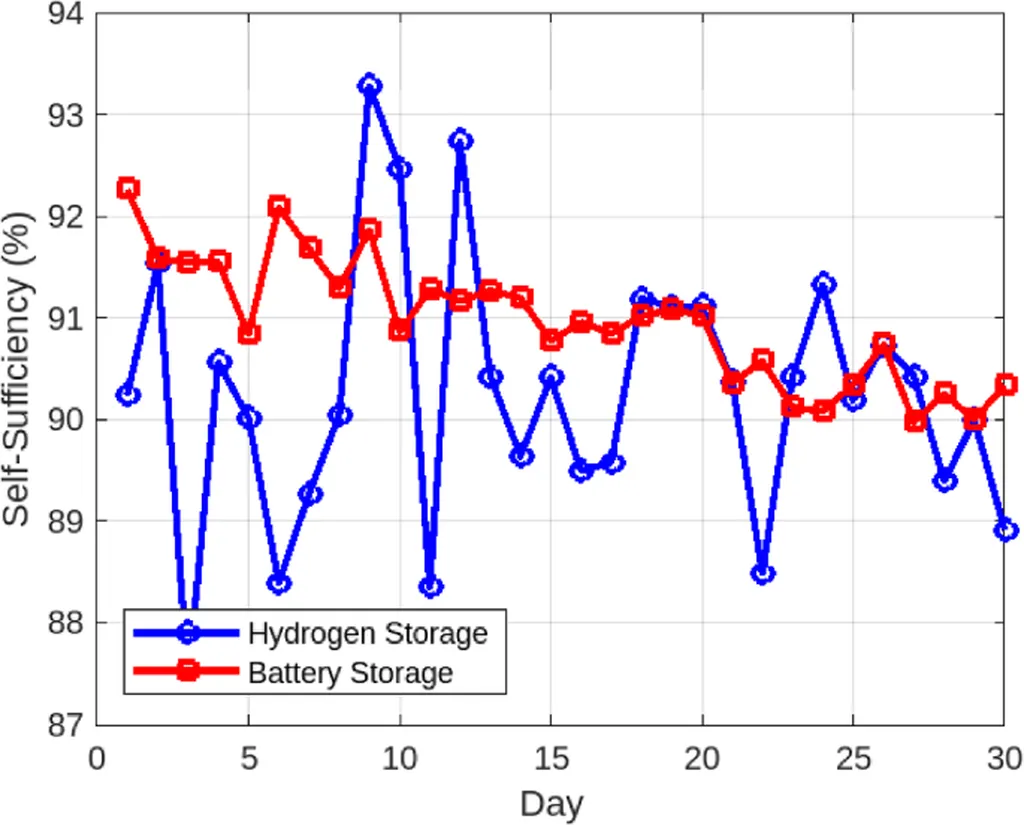In a significant stride towards greener and more efficient energy management, a team of researchers led by Marwa Hassan from the Department of Electrical and Control at the Arab Academy for Science, Technology & Maritime Transport (AASTMT) has developed an innovative artificial intelligence (AI) framework for hydrogen storage and dispatch in smart microgrids. The study, published in the journal Scientific Reports, offers a promising solution to some of the most pressing challenges in integrating renewable energy sources into maritime and other sectors.
The research focuses on hydrogen energy storage, which is increasingly seen as a crucial component for enhancing flexibility and reliability in smart microgrids. However, practical deployment has been hindered by complexities such as real-time dispatch, forecasting uncertainty, and nonlinear system dynamics. To tackle these issues, Hassan and her team have created an AI-powered decision-support framework that combines Long Short-Term Memory (LSTM) neural networks for short-term forecasting with the Krill Herd Algorithm (KHA) for optimizing hydrogen charging and discharging schedules.
In simpler terms, the system uses AI to predict energy needs and then figures out the best way to store and use hydrogen to meet those needs efficiently. This approach not only improves energy management but also reduces reliance on external power sources and lowers emissions.
The researchers tested their framework in a real-world case study based in Aswan, Egypt, a region known for its high solar irradiance. The simulated microgrid included a 5 kW photovoltaic array and a hydrogen storage system designed for daily autonomy. The results were impressive: the LSTM-KHA framework achieved a forecasting accuracy of 4.8% (Mean Absolute Percentage Error), reduced average grid import by 35.6%, and lowered average PV curtailment by 21.4%. It also improved energy self-sufficiency from 71.5% to 89.7% and resulted in a daily CO2 emissions reduction of approximately 7.76 kg.
“These results confirm the potential of combining deep learning with nature-inspired optimization to support intelligent, low-emission energy management in hydrogen-integrated microgrids,” said Hassan.
For the maritime sector, the implications are substantial. Ships and offshore platforms are increasingly looking to integrate renewable energy sources and hydrogen storage to reduce their carbon footprint and improve energy efficiency. The AI framework developed by Hassan and her team could be a game-changer, enabling more efficient and reliable energy management on board vessels and in offshore installations.
The commercial impacts are equally significant. As the maritime industry moves towards decarbonization, technologies that can enhance energy efficiency and reduce emissions will be in high demand. The AI-powered framework offers a scalable and adaptable solution that can be tailored to the specific needs of different maritime operations.
Moreover, the framework’s ability to optimize energy storage and dispatch can lead to cost savings by reducing reliance on external power sources and minimizing energy waste. This can be particularly beneficial for maritime operations, where energy costs can be a significant expense.
In conclusion, the research led by Marwa Hassan represents a significant step forward in the quest for more efficient and sustainable energy management. By leveraging the power of AI, the framework offers a promising solution to the challenges of integrating renewable energy sources into smart microgrids, with wide-ranging applications and benefits for the maritime sector.

